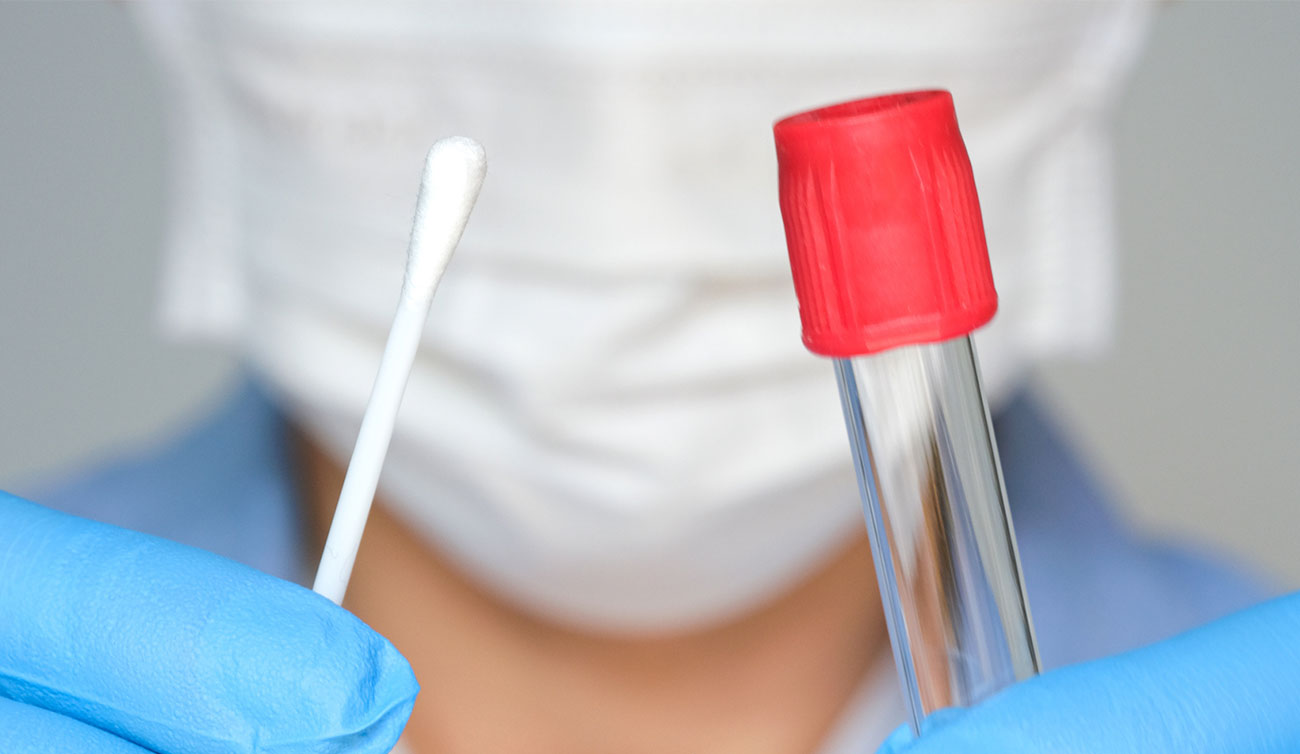COVID-19 testing has become a fact of life for most of us by now, but the rate of information on types of tests, how they work, and when to get them can make your head spin. Let’s cut through the clutter—here are the most important things to know about COVID-19 testing for yourself and your family.
The Cliff’s Notes Version
Tests for an active COVID-19 infection generally come in one of two flavors: molecular tests and antigen tests. Molecular tests, which include the most common nasal PCR test, detect the virus’s actual genetic material. Antigen tests, AKA “rapid tests,” look for specific proteins (antigens) that are unique to the Coronavirus, not the virus itself.
The main takeaway from a comparison of the two is that antigen tests typically provide results faster, while molecular tests are more accurate. However, there are a number of other factors to consider when selecting the best diagnostic method for you.
PCR (Molecular) Test
How it Works
Considered the “gold standard” in SARS-CoV-2 detection for its accuracy, a PCR test is performed by taking a sample from the nostril or throat with a long Q-Tip, or by collecting a saliva sample.
PCR tests can detect the virus within days of infection, even without symptoms present. It can be done in a medical setting (like a clinic or hospital), in your car (as in a drive-through clinic), or even in your own home.
Turnaround time for test results ranges from same day to three days.
Benefits
- Most accurate results of all standard COVID-19 test methods
- Can produce more accurate results in asymptomatic carriers of the virus
- Saliva tests offer a “do-it-yourself” option for those who can’t tolerate the nasopharyngeal swab or are uncomfortable with the proximity to others during a swab collection (this safety benefit also applies to care providers administering the test).
Drawbacks
- Slower turnaround time than an antigen rapid test, a timetable which can be impacted further by high demand in a clinic or lab
- Saliva tests require…a lot of saliva. In fact, it takes most people 10-12 minutes just to produce enough to meet the sample criteria.
Good to Know
The PCR test is ideal if you’re hitting the road. Airlines, hotels, cruise lines, and government bodies with COVID-19 regulations for travelers most often require PCR test results. But time your test carefully—many such entities demand test results no older than three days, which leaves a pretty tight window between test and takeoff.
Additionally, people who need regular tests, such as students or employees of some businesses, will get more reliable test results from routine PCR testing.
Are you in the NYC metro area?
Zeel offers in-home COVID-19 PCR testing for individuals, families, and businesses. Our network of trusted, licensed nurses will come directly to you, collect samples in just a few minutes, and you’ll get your results within 48 hours. Book a COVID-19 PCR Test Now →
Antigen Test (AKA “Rapid Test”)
How it works
COVID-19 antigen tests are performed like common PCR tests, via a nasal or nasopharyngeal swab, in a doctor’s office, hospital, or clinic. Turnaround time for antigen test results is usually very fast—in some cases, within 15 minutes.
Benefits
- Faster delivery of results—in some cases within 15 minutes of the test
- May indicate if a person who is positive is more likely to spread the virus
Drawbacks
- Not as accurate in detecting an active infection, especially for those not displaying symptoms
- The false-positive rate of antigen tests can be as high as 50%
Good to Know
A positive antigen test result is considered a “probable” case of COVID-19, while a positive PCR result is considered a “confirmed” case. What does that mean to a patient? Due to the lower accuracy of the antigen test, positive results are often followed by a confirmation test in the form of—care to take a guess?—a PCR test.
Our Verdict
If you can hold your horses longer than 15 minutes, you’ll get more reliable results—and greater peace of mind—from a PCR test. As testing becomes more routine nationwide, that difference in turnaround time is shrinking, so if you waited a week for PCR results in, say, June 2020, you’ll likely have a speedier experience now.
“But what about the antibody test I used to hear so much about?”
COVID-19 antibody tests only detect antibodies in the immune system developed in response to the virus, NOT the virus itself.
There are three different types of antibodies to COVID-19—IgA, IgM and IgG—which develop at different times during the course of the infection and recovery. IgM antibodies disappear after a few weeks while IgG antibodies persist for at least a few months. At this time it is thought antibodies will prevent reinfection 90% of the time, though it’s uncertain how long the immunity may last, and there are some who don’t even develop antibodies in the first place.
Because of these uncertainties, antibody test results—positive or negative—should NOT impact your safety precautions when it comes to protecting yourself and others against the spread of COVID-19.
How it Works
A COVID-19 antibody test is a blood serology test, performed using a finger stick or venous blood draw. Results can arrive as fast as same day, but can take up to 3 days, depending on the facility. Antibody tests are most useful 7-10 days after the onset of symptoms.
Benefits
- May indicate if you have had a recent infection in the last couple of weeks or may show you had an infection COVID-19 infection in the past (months)
Drawbacks
- Does not test for acute/active COVID-19 infection
- May only indicate COVID-19 exposure, and not actual infection
- Accuracy varies widely based on when the test is performed, relative to virus exposure
Good to Know
Folks who are curious about their own molecular biology will certainly find antibody testing interesting, but if you need an accurate diagnosis of active COVID-19 infection, this is not the test you’re looking for!
Make COVID-19 testing a part of your household routine, and you’ll always have peace of mind.
New York City metro area only
Sources
https://www.fda.gov/media/140161/download
https://my.clevelandclinic.org/health/diagnostics/21462-covid-19-and-pcr-testing
https://www.health.state.mn.us/diseases/coronavirus/testsites/types.html
https://asm.org/Articles/2020/April/COVID-19-Testing-FAQs
https://www.health.harvard.edu/blog/which-test-is-best-for-covid-19-2020081020734
https://www.memorialhealthcare.org/whats-the-difference-between-covid-19-rapid-and-prc-tests/



